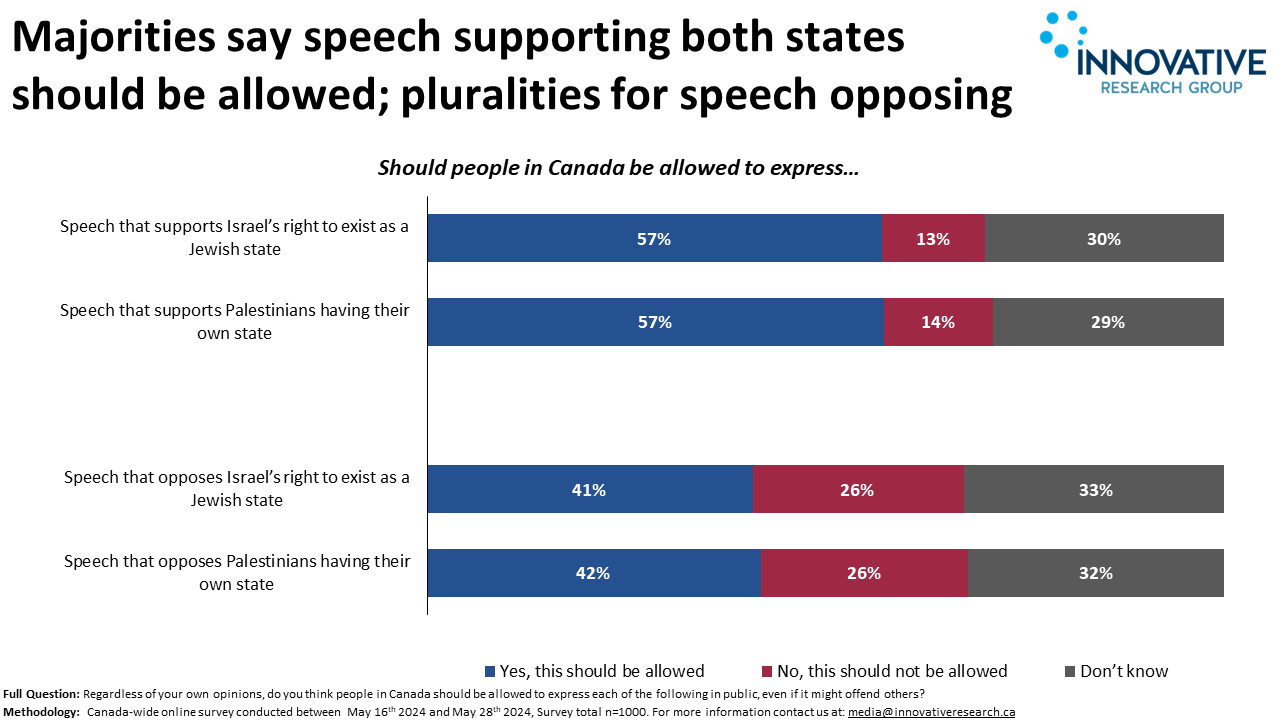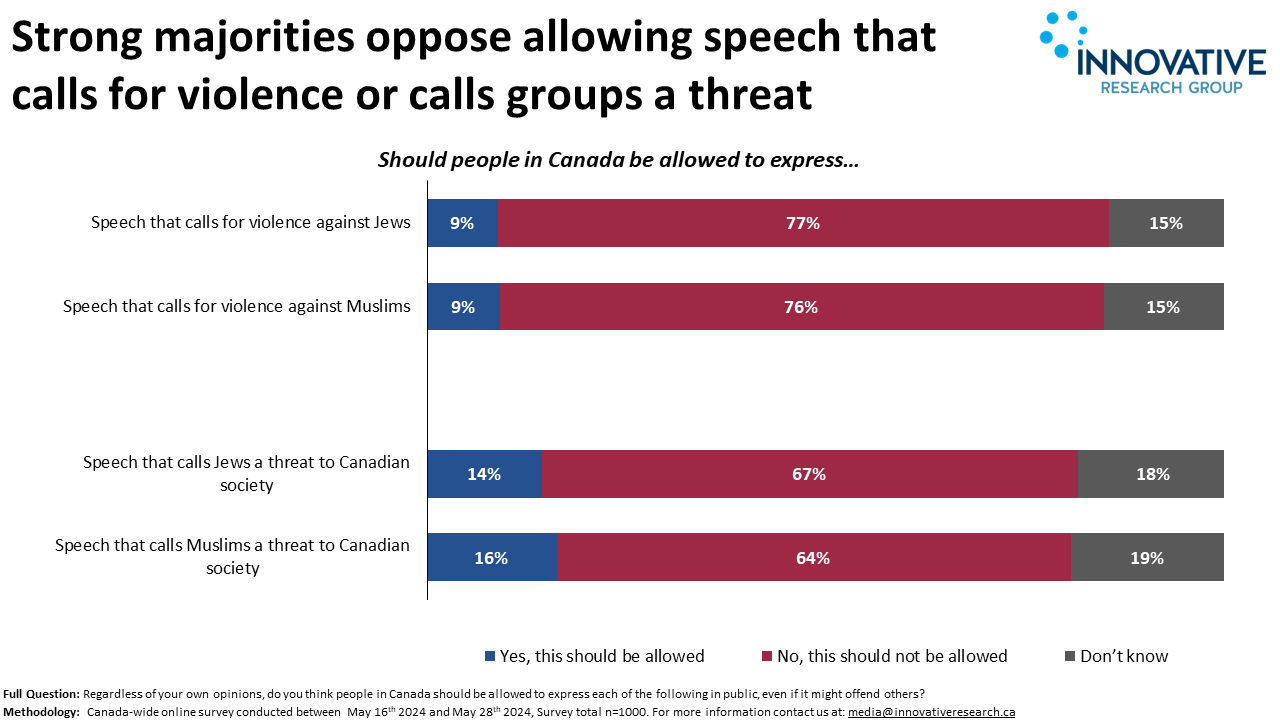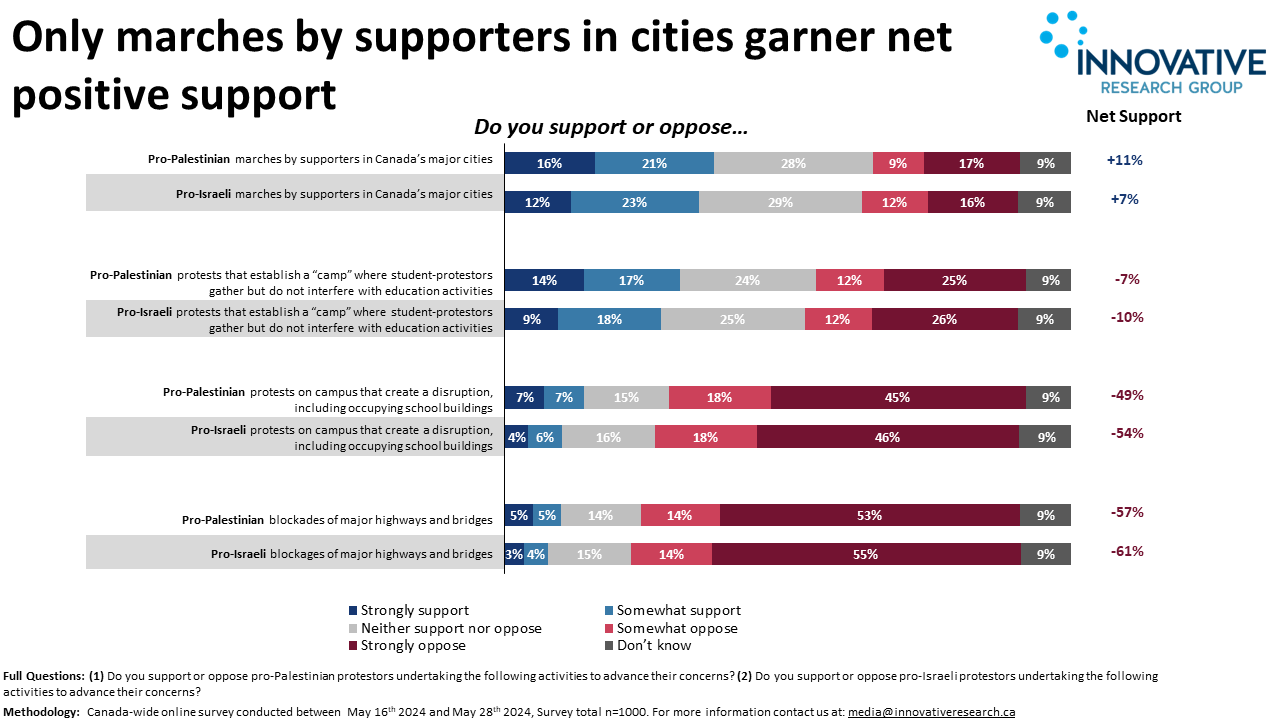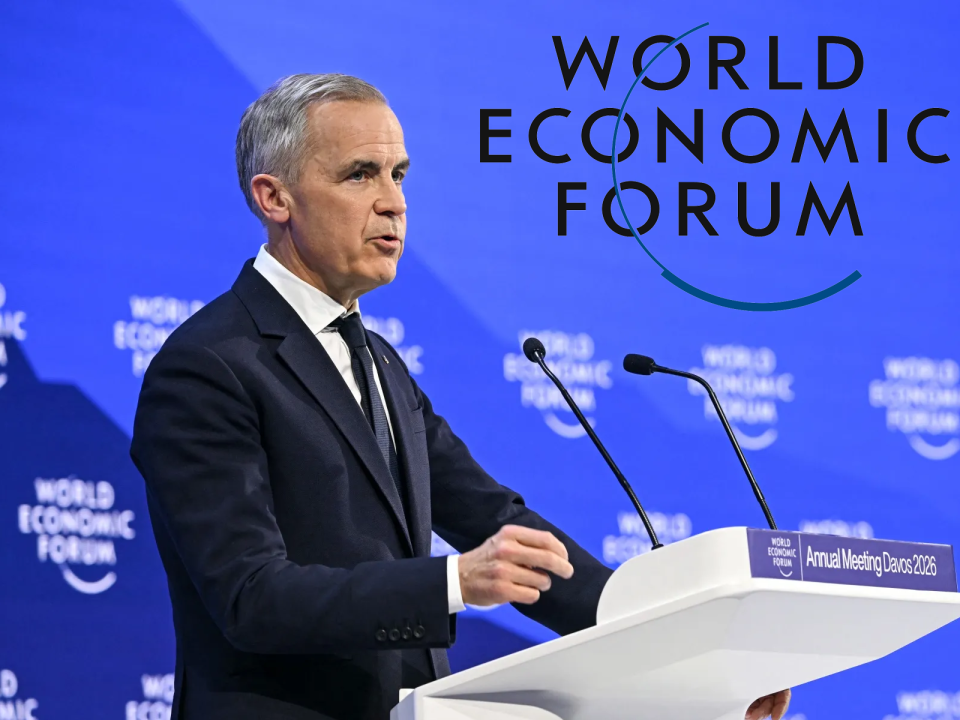
When it comes to speech and protest about the war in Gaza, there is a strong Canadian consensus and what is and is not acceptable. This consensus includes both Canadians who generally take share the Israeli position and those who usually share the Palestinian position. These are the results of a May 2024 INNOVATIVE online survey that asked 1,872 Canadians a series of questions about how the limits of free speech, and reactions to protests. A detailed methodology is provided in the report.
Overview
The research found that 51% reported following “news about the recent situation in the Middle East involving Israel and the Palestinians” somewhat/very closely, and 49% were not following too closely/at all.
Most respondents (60%) reported either not having a view or feeling split in their views regarding the situation involving Israel and the Palestinians. Overall, the level of support for those who tend to take one side over the other is slightly higher for those taking Israel’s side (22%) than the Palestinians’ side (18%).
Canadians tend to agree that it’s important both for Israel to exist as a Jewish state (52%), and important to create a state for the Palestinians (49%). What is unique compared to some other recent debates is that pluralities among both those who usually take Israel’s view and those who usually take the Palestinians’ view agree the other should have a state.
Speech
When it comes to what people should be allowed to say about Israel and Palestine, Canadians are quite permissive:
- Majorities support speech that advocates for both the Israeli state (57%) and the Palestinian state (57%). Small minorities oppose this (14% for Palestine, 13% for Israel).
- Pluralities support speech that opposes both the Palestinian state (42%) and the Israeli state (41%) but significant minorities would oppose this speech (26% oppose both for a Palestinian state and for Israel).

But, when it comes to more violent speech, Canadians draw a firm line.
- Roughly two-thirds oppose speech that calls Muslims (64%) or Jews (67%) a threat to Canadian society with only a small minority willing to allow it (14% for speech that calls Jews a threat, and 16% for speech that calls Muslims a threat).
- Three-quarters oppose speech that calls for violence against Jews (77%) or Muslims (76%), but a very small minority of 9% for allow it for either.

Consistent with the above results, 73% of respondents believe that Canadians experiencing hate, discrimination, or violence, based on conflicts or events in their countries of origin is somewhat or very serious problem.
One story the research revealed about permissible speech among respondents either taking Israel’s or the Palestinians’ view is that respondents taking Israel’s view tended to be more supportive of a range of speech, above Canadians as a whole and above the Palestinians’ views group. One example is that in the “Israel’s view” cohort, 27% report thinking that speech that calls Muslims a threat to Canadian society should be allowed. That’s above the 13% of those taking the Palestinians’ views and the 16% of Canadians overall that feel the same. However, this permissiveness from those taking Israel’s view extends to speech calling Jews a threat to Canadian society. Twenty-percent (20%) taking Israel’s view agreed that this speech should be allowed, compared to 12% of Palestinians’ view and 14% overall.
Protests
Slightly fewer Canadians are paying attention to protests (45%) sparked by the war in Gaza compared to awareness of the general issue (51%).
Overall, Canadians support protest marches, but have very limited tolerance for disruptive protests from either group.
- Pluralities support pro-Israeli (35%) and pro-Palestinian (37%) marches.
- Pluralities oppose pro-Palestinian (37%) and pro-Israeli (38%) camps on campuses, even if they don’t interfere with education activities.
- Strong majorities oppose pro-Israeli (64%) and pro-Palestinian (63%) campus protests that create a disruption.
- Even stronger majorities oppose pro-Palestinian (67%) and pro-Israeli (69%) blockades of major highways and bridges.
In the past, INNOVATIVE conducted research on other protests, including the Trucker Protests in 2022 and the Wet’suwet’en protests in 2020. Compared to those protests, the public reaction is more similar to the Wet’suwet’en reactions, where there was net support for protest marches in cities. In all the controversies, majorities oppose disruptive protests. However, the Wet’suwet’en protests also received net support for “sit-ins” in the offices of elected officials (+9%), whereas the different but similar idea of establishing protest “camps” where student-protestors gather but don’t interfere with education activities received net negative support for both pro-Israeli and pro-Palestinian protests, (-10%) and (-7%) respectively.

Summary
There is a clear consensus among Canadians when it comes to speech and protest from both sides of the war in Gaza.
- There was strong agreement for the idea that it is both important to create a Jewish state, and to create a state for the Palestinians.
- Canadians think that speech supporting/opposing either state is permissible and should be allowed.
- And Canadians broadly agree that speech calling for violence or saying that either group is a threat to Canadian society should not be allowed.
Despite the deeply held and intense feelings on these issues among opposing groups, a plurality those taking Israel’s view and those taking the Palestinians’ view agreed it was important for the other state to exist, and both groups largely respect the speech rights of each other, to peaceably protest and argue their convictions in public. Pluralities from both sides opposed speech calling for violence against the other side and disruptive protests from their own side.
Unlike some other recent controversies such as the Convoy protests and Coastal LNG protests, we do not find the same degree of bias in how Canadians view speech and protest on the Gaza issue. In age of increased tribalism and outrage, this tragic event provides a positive example of Canadians engaging civilly in a passionate issue.


































